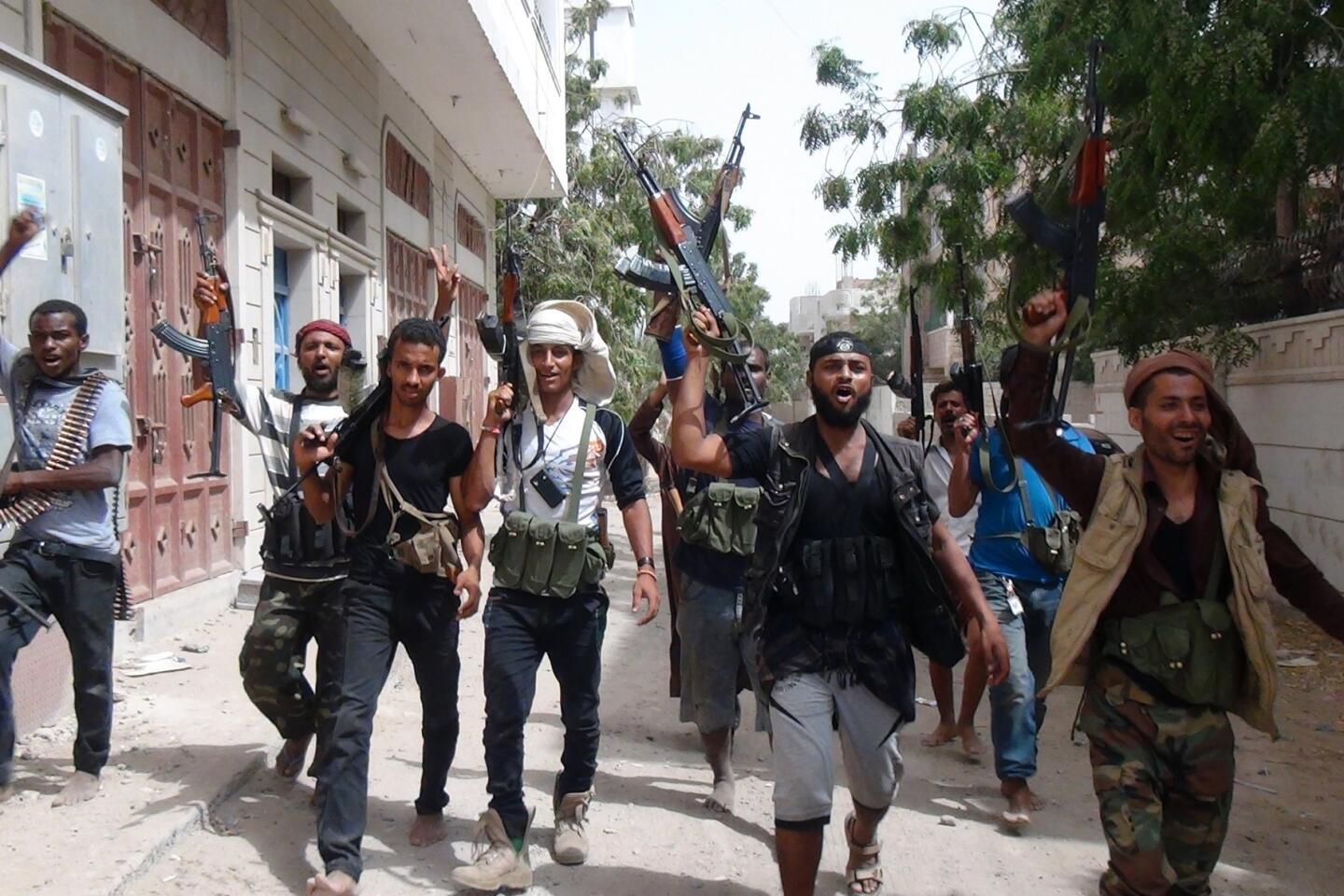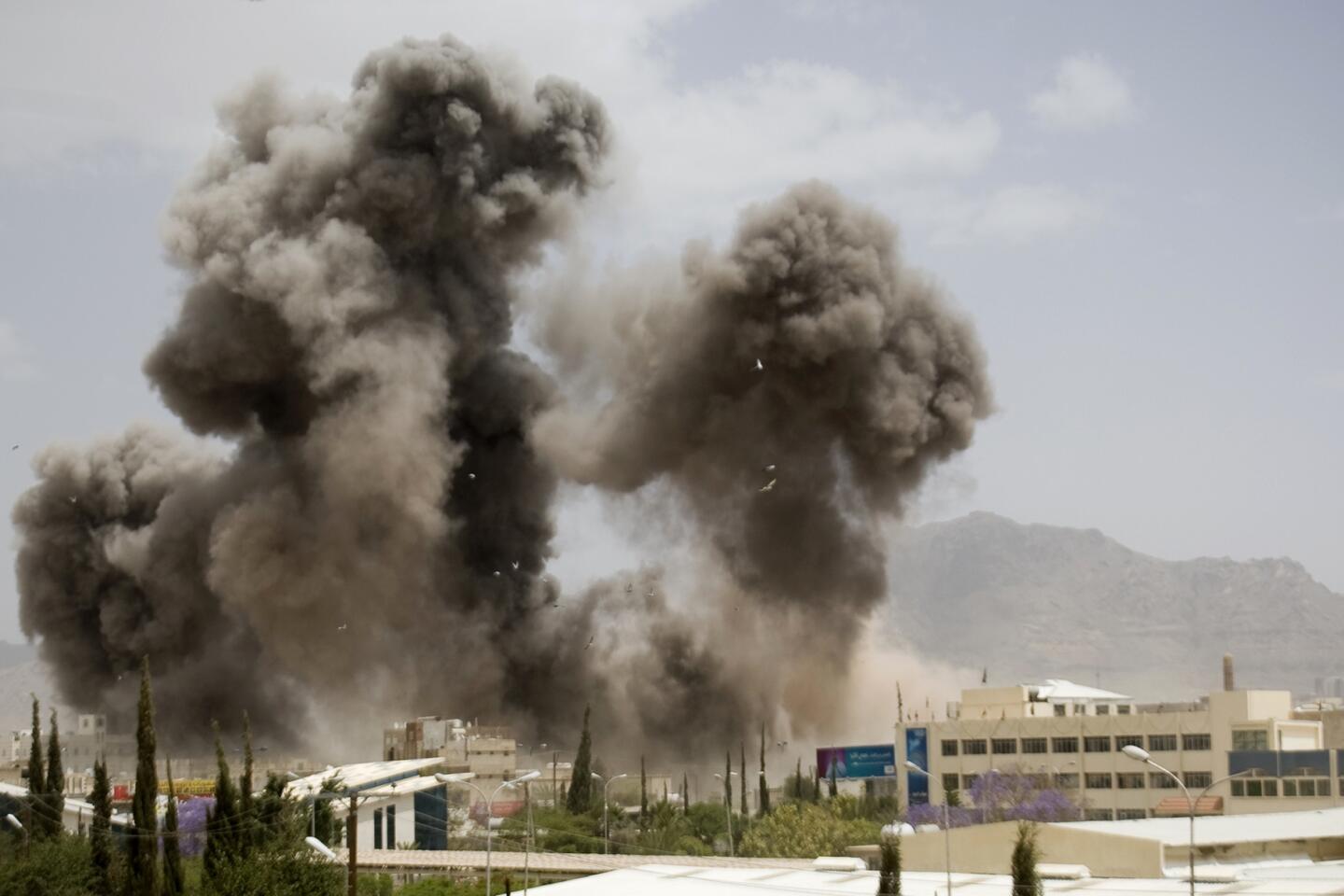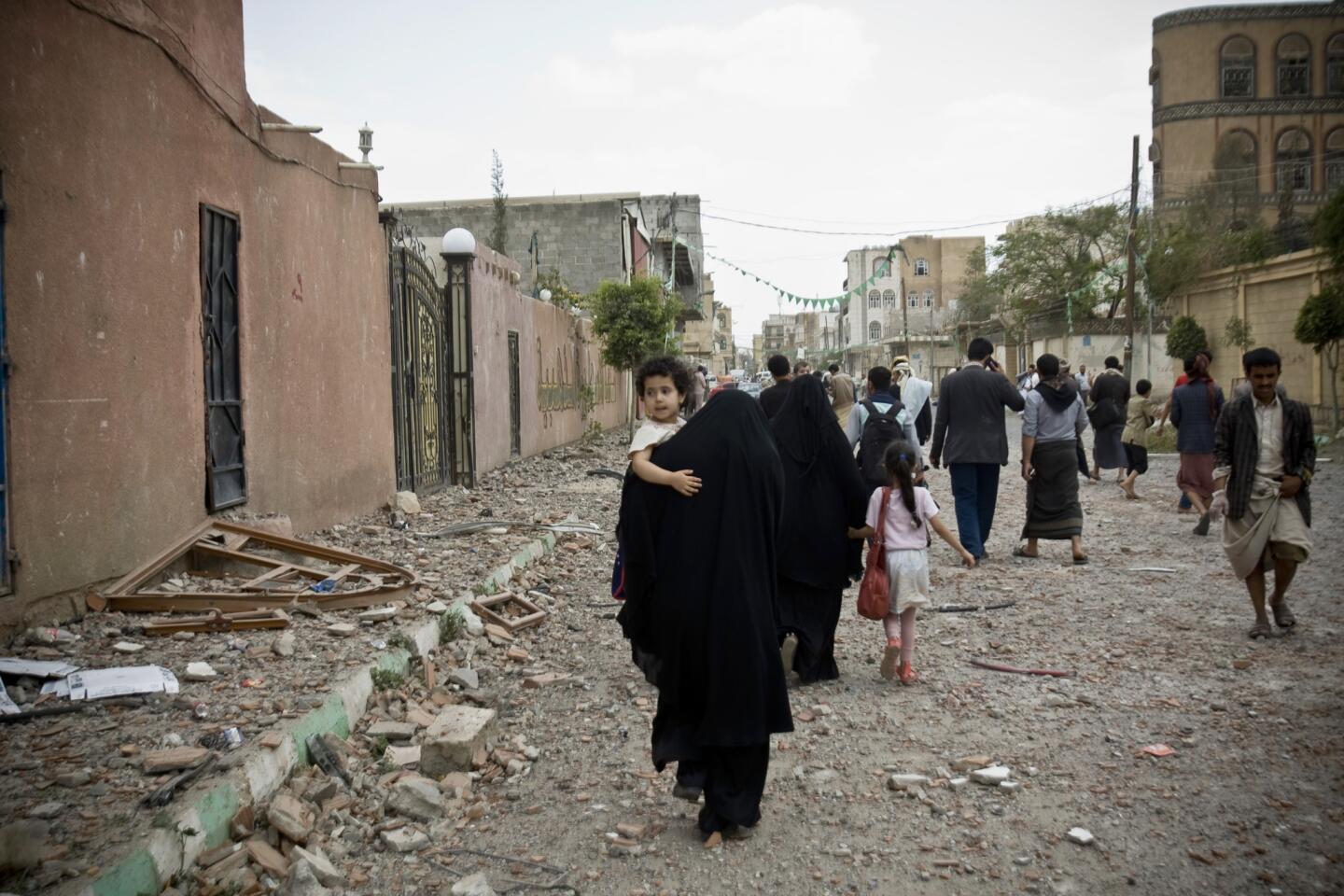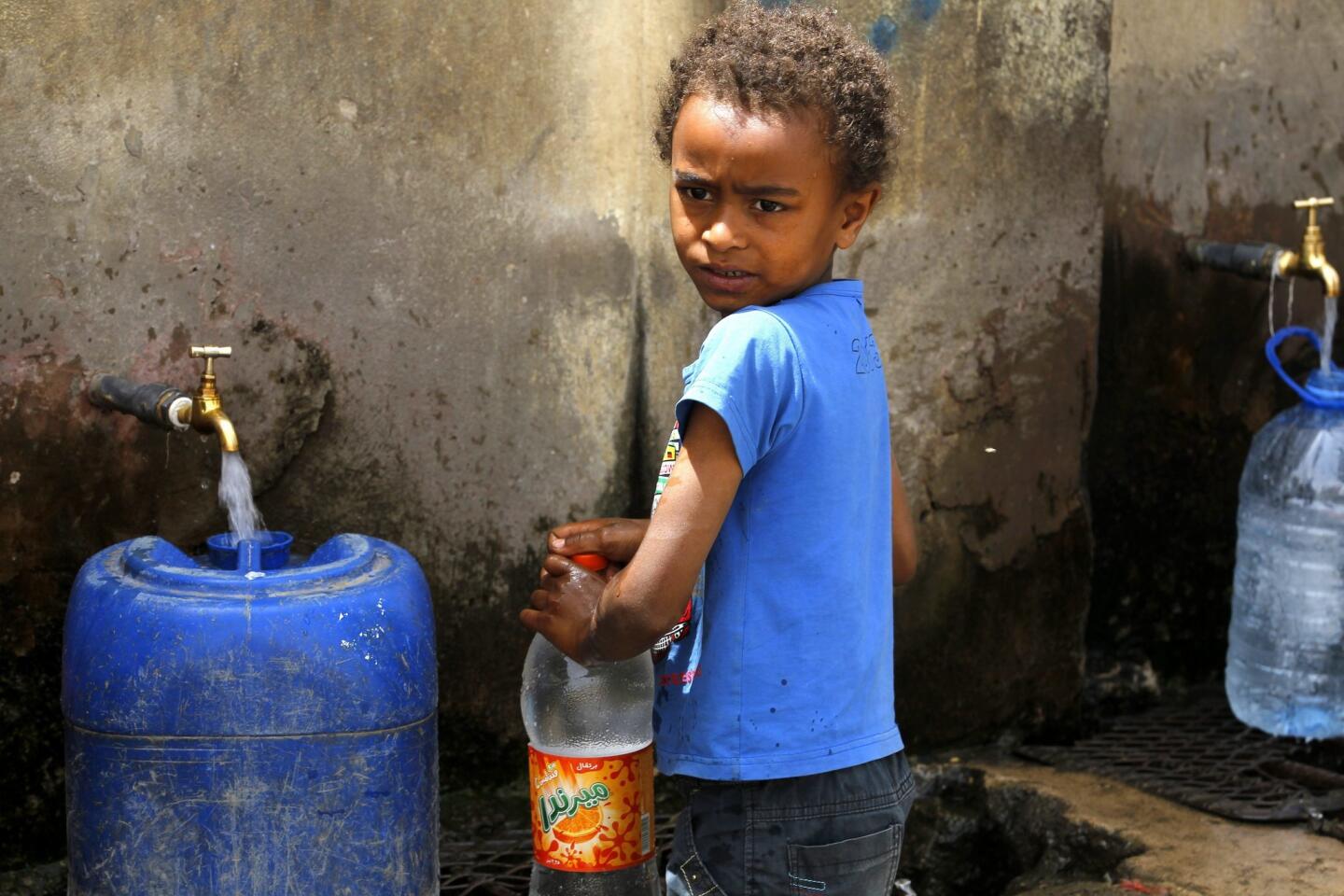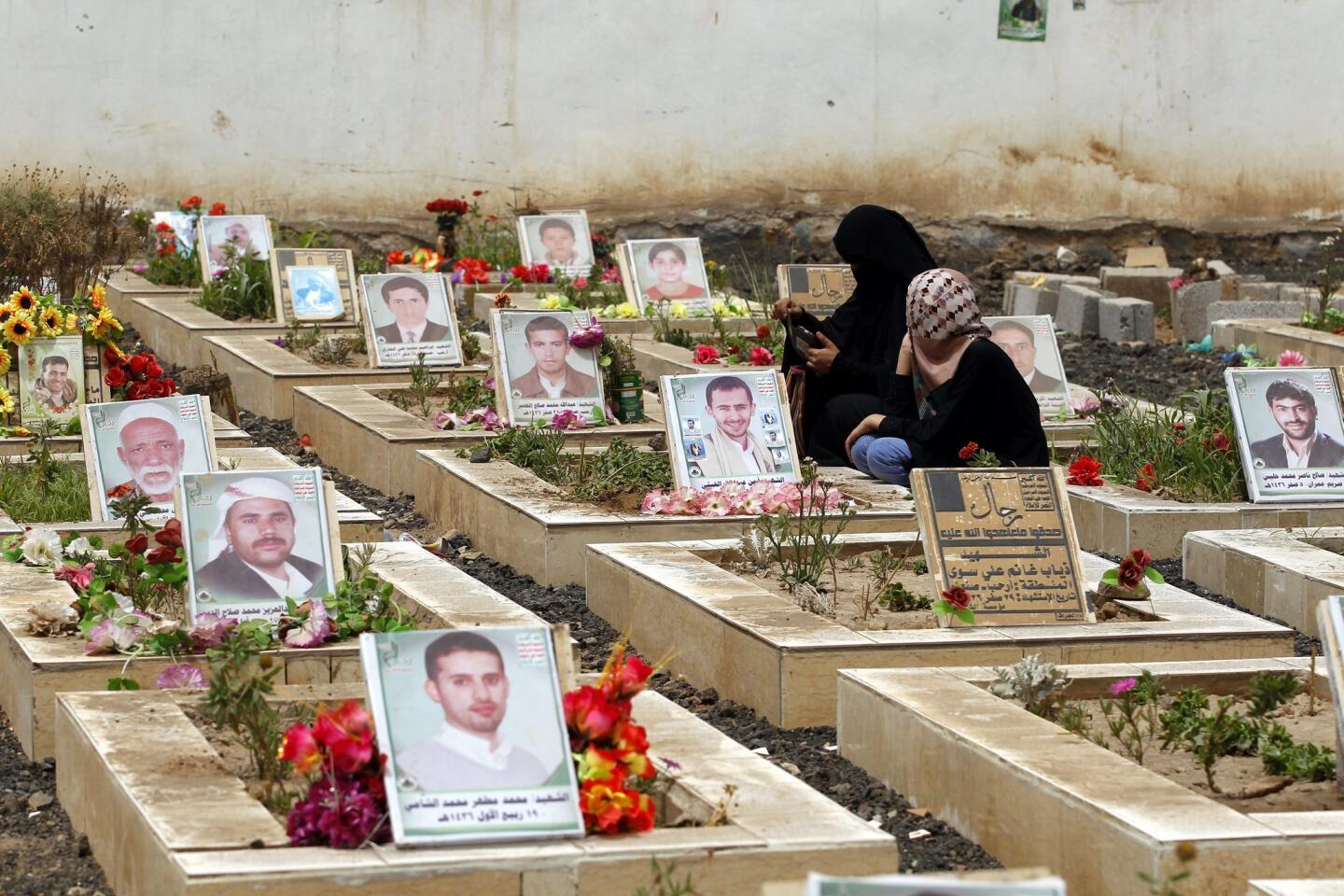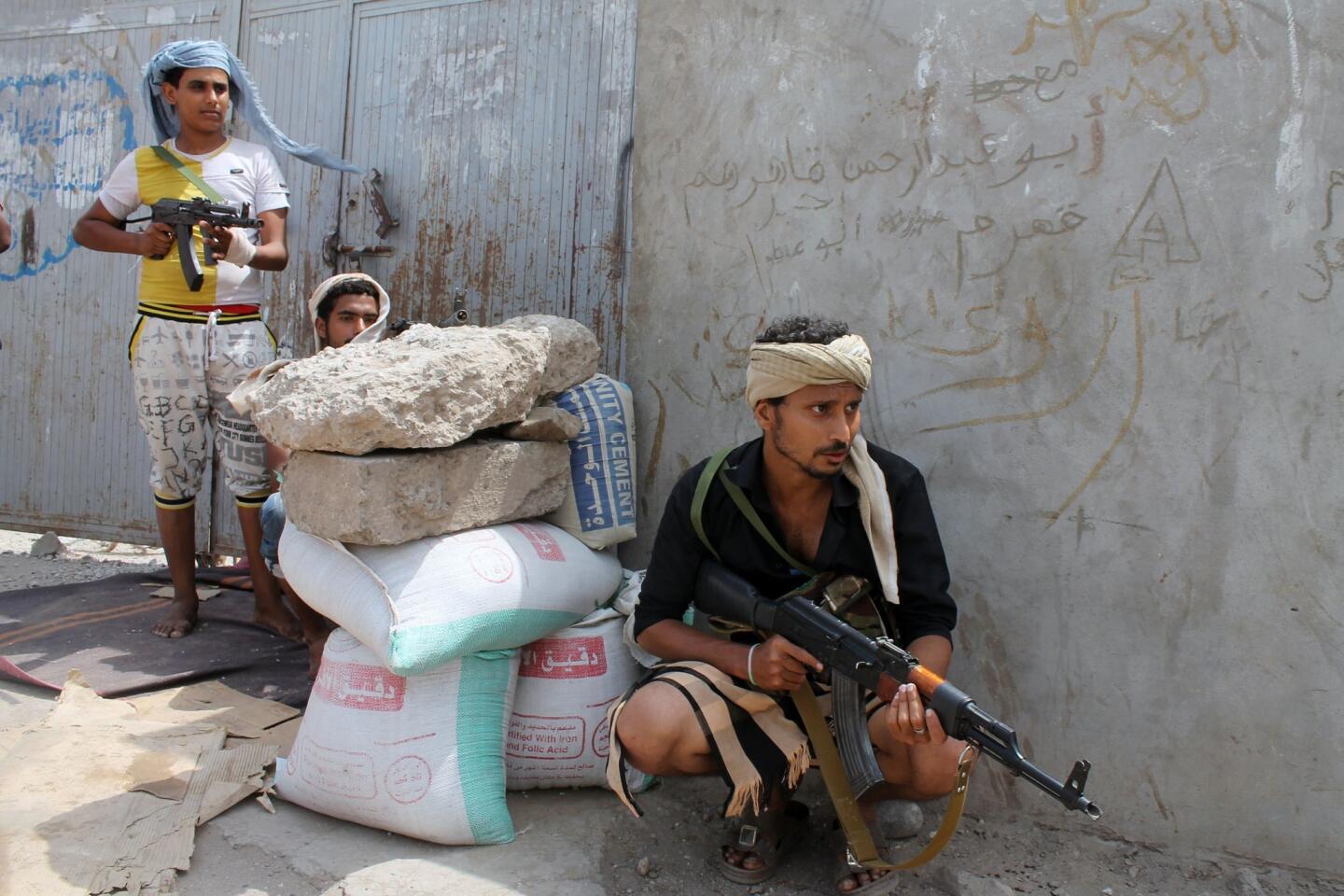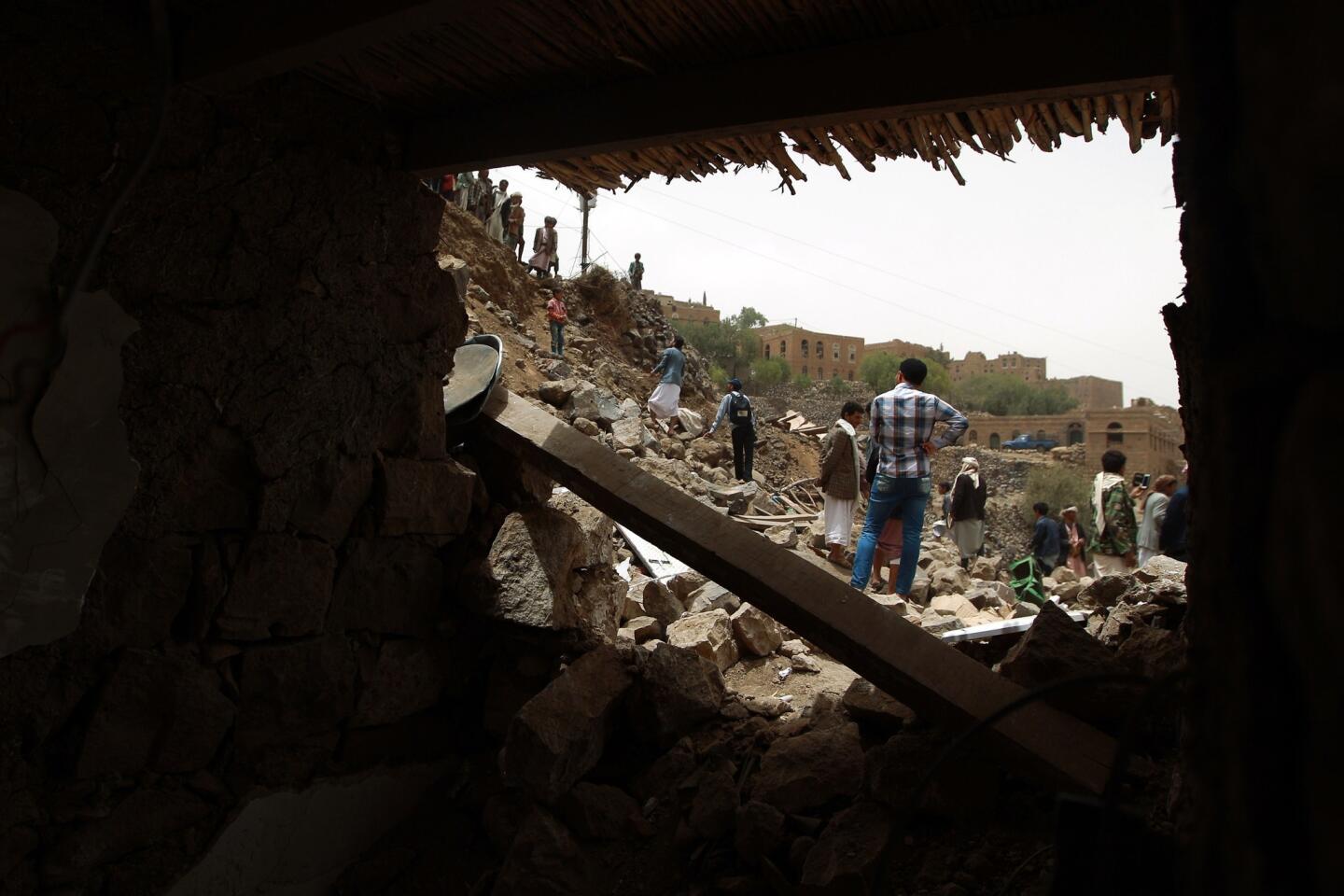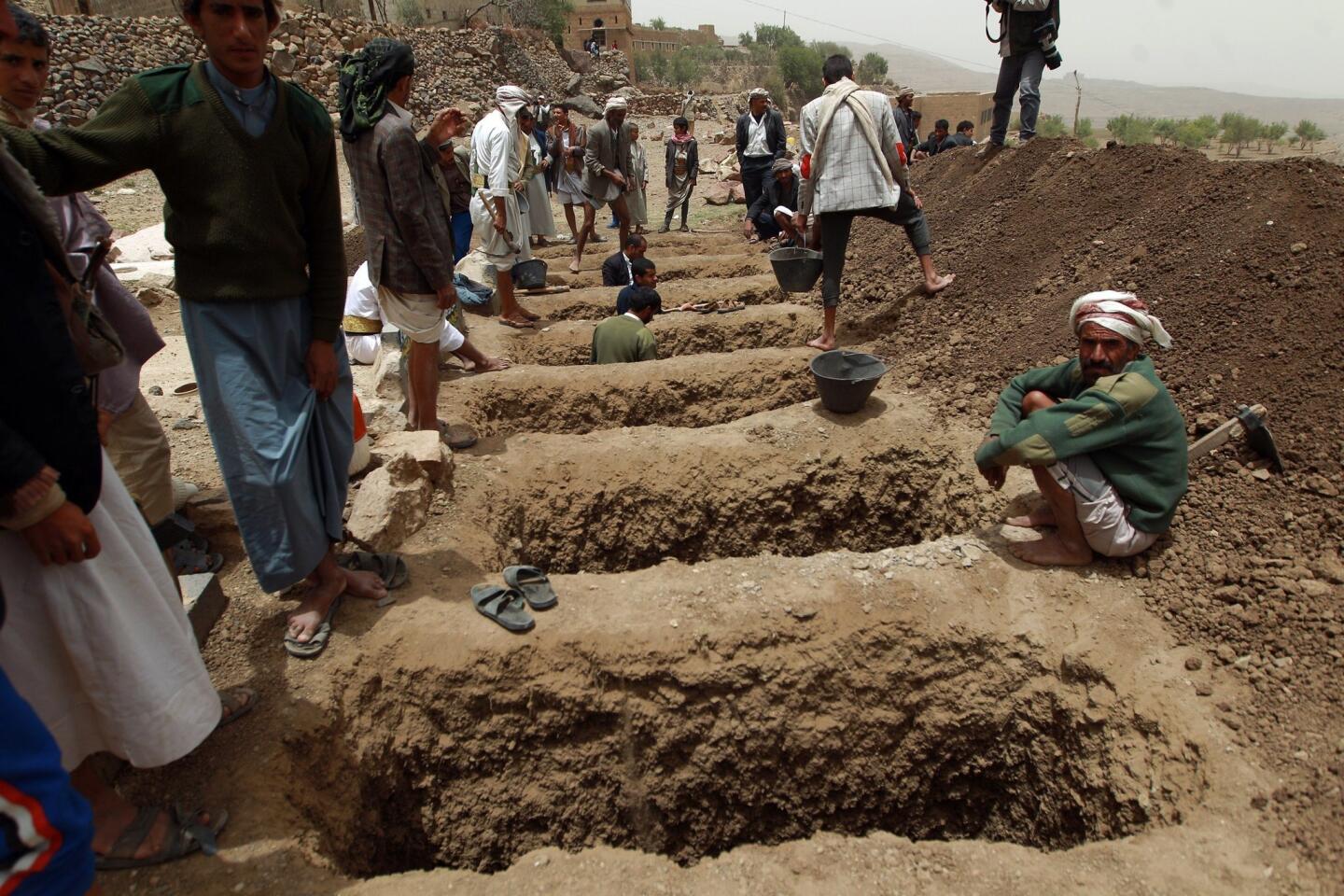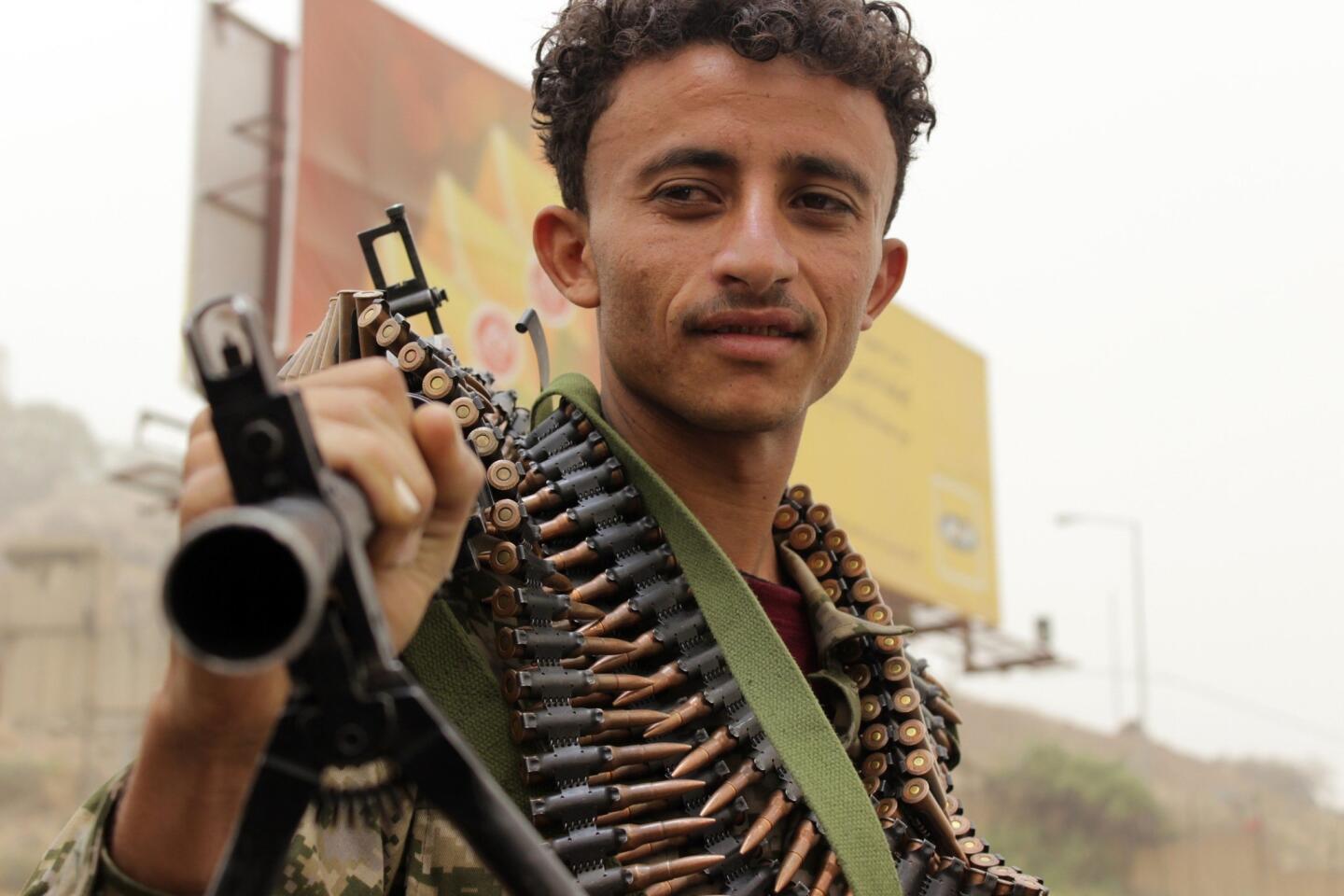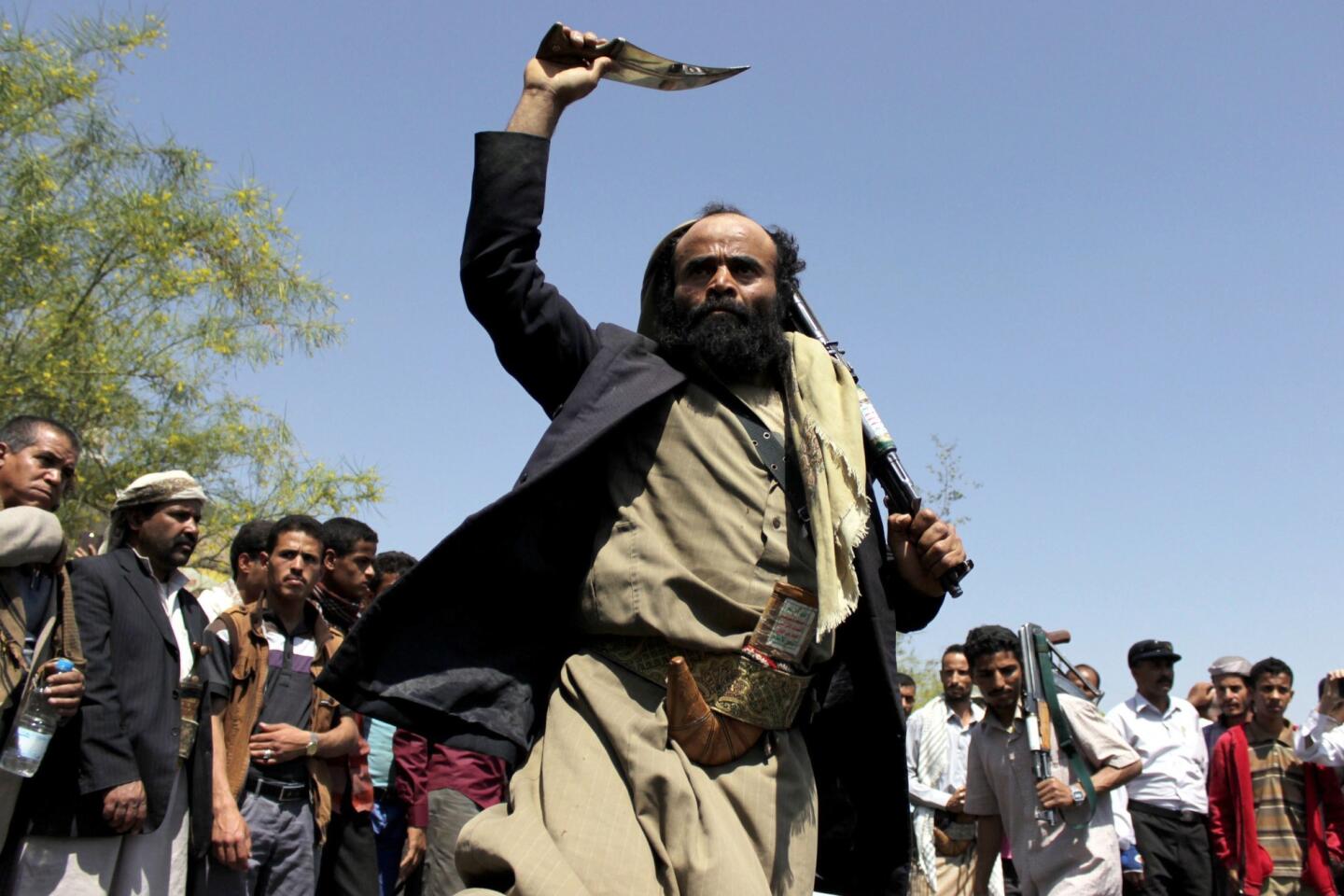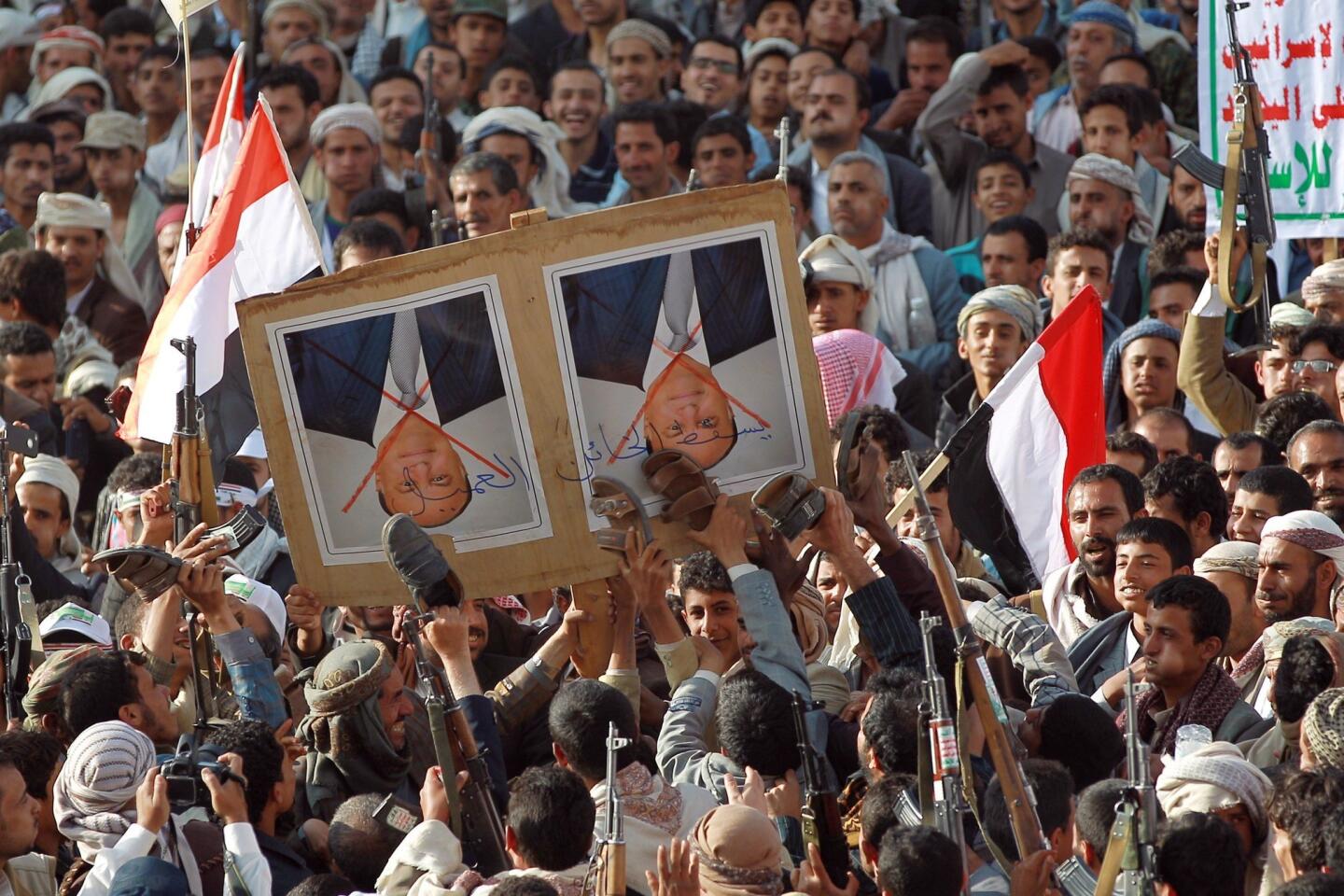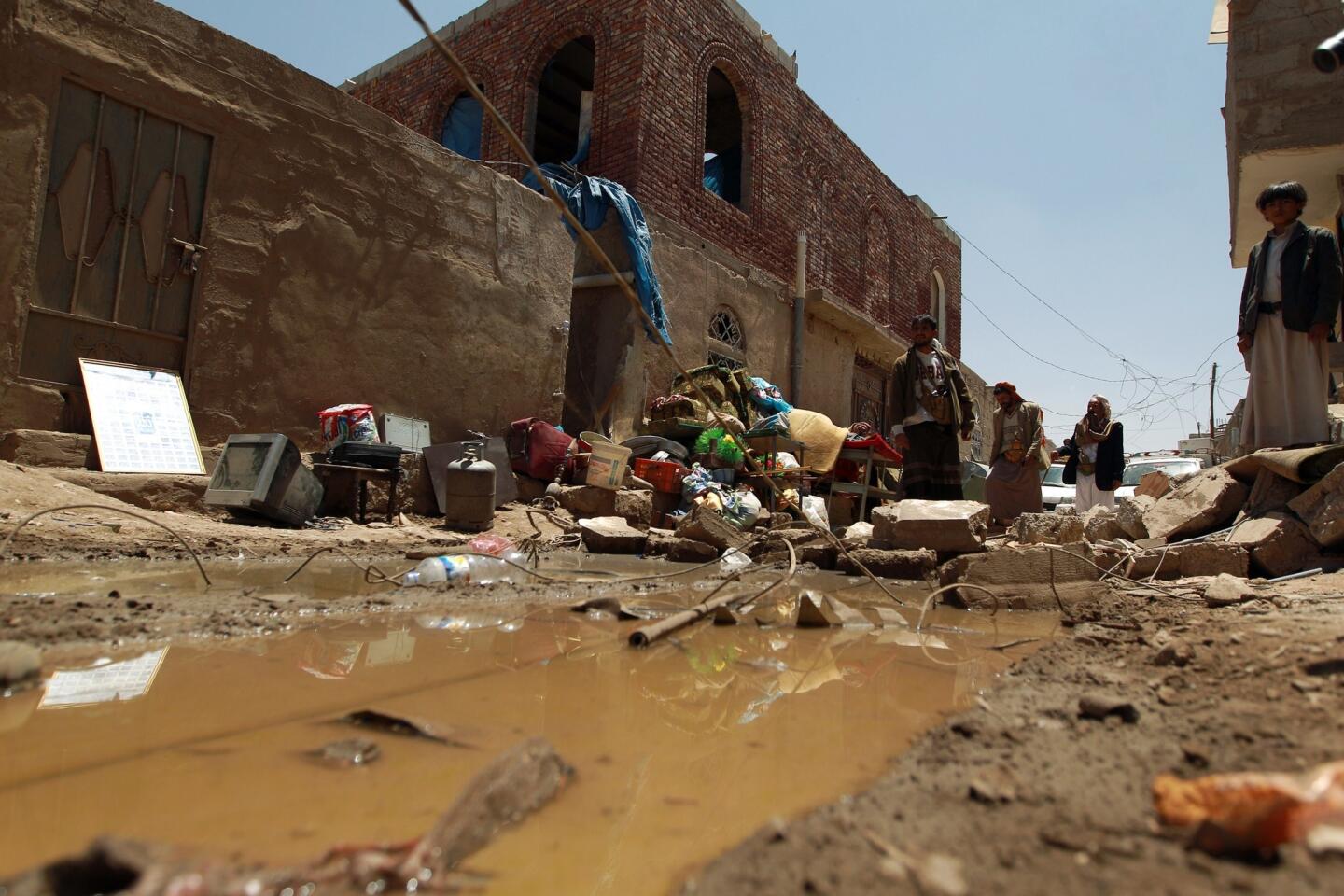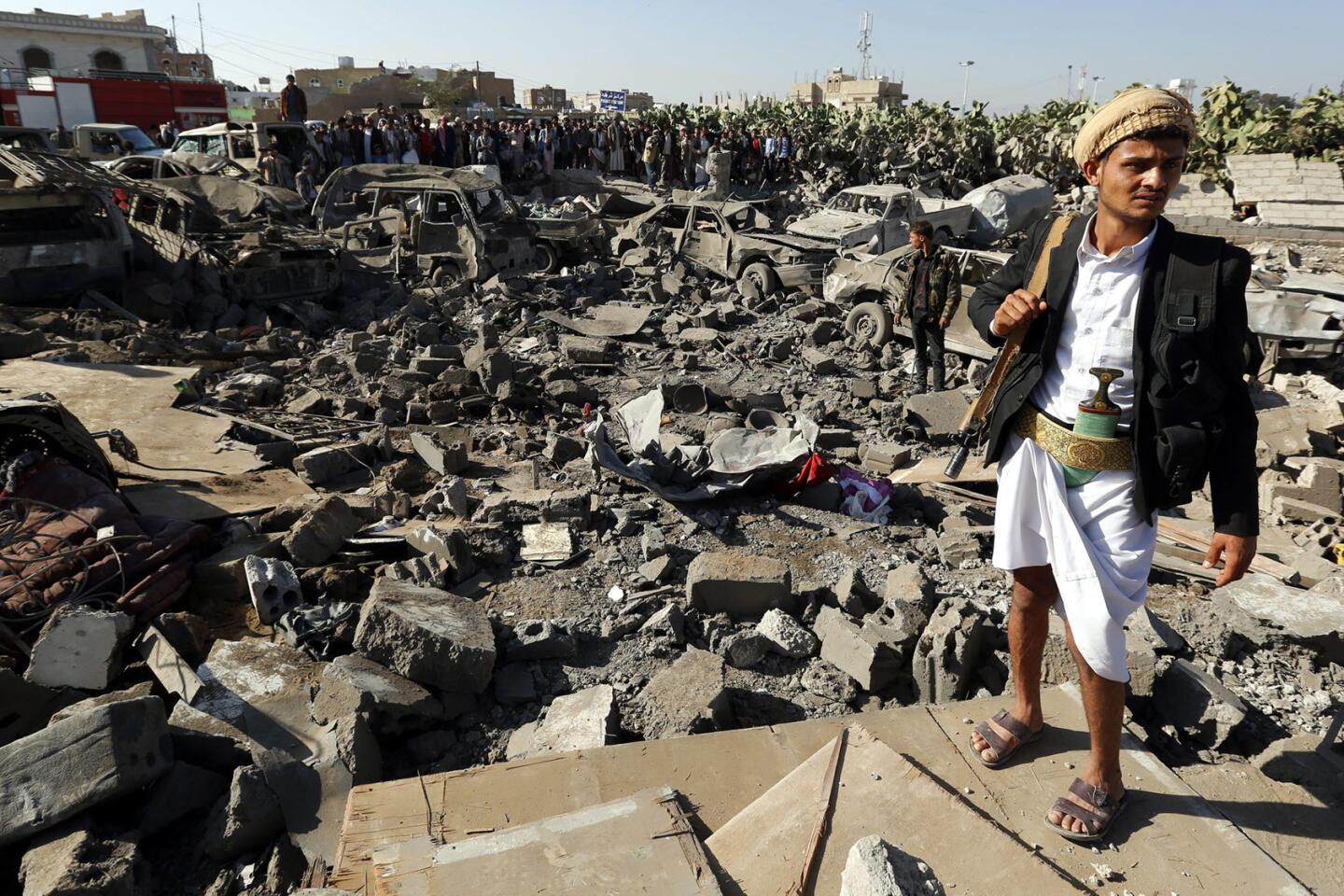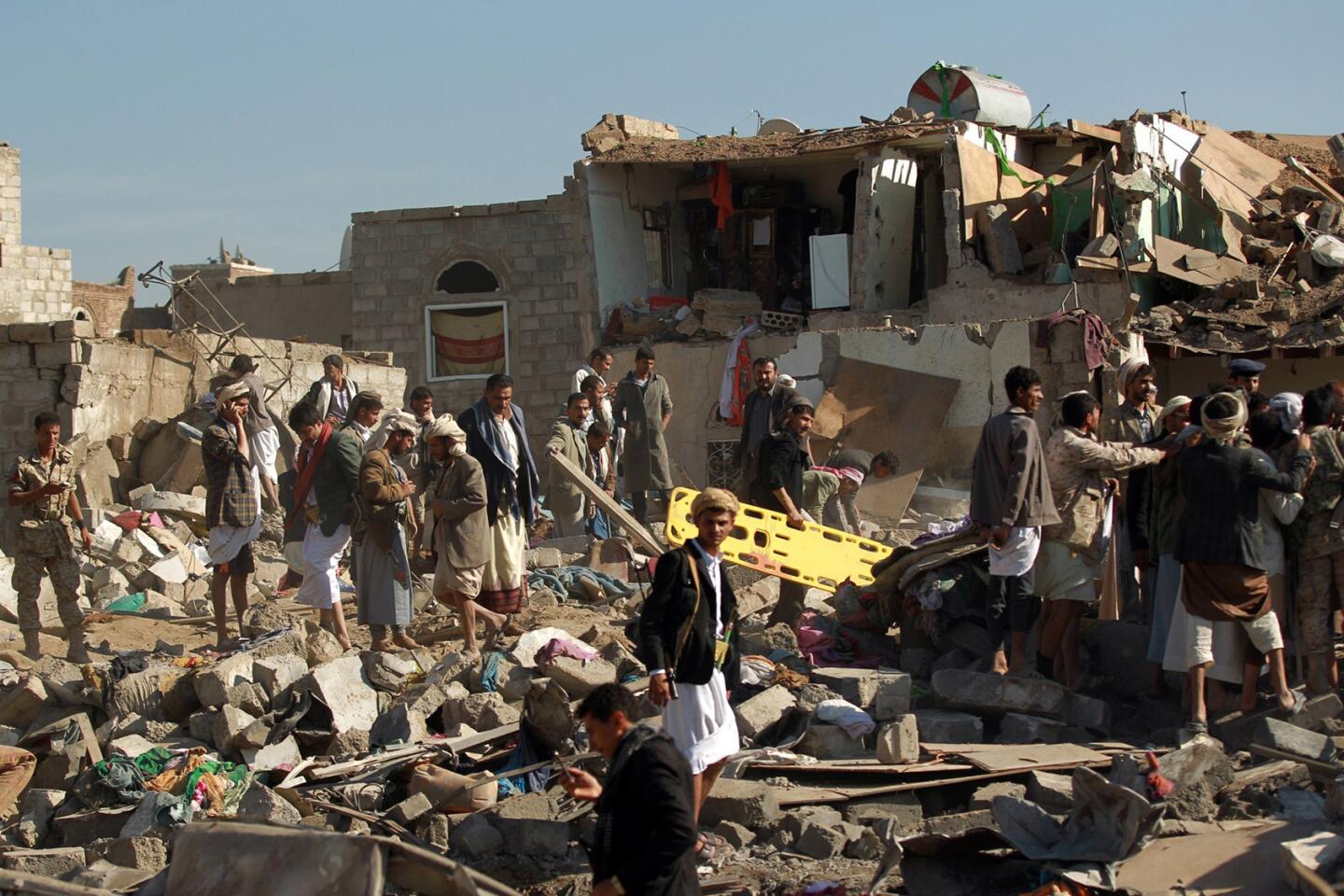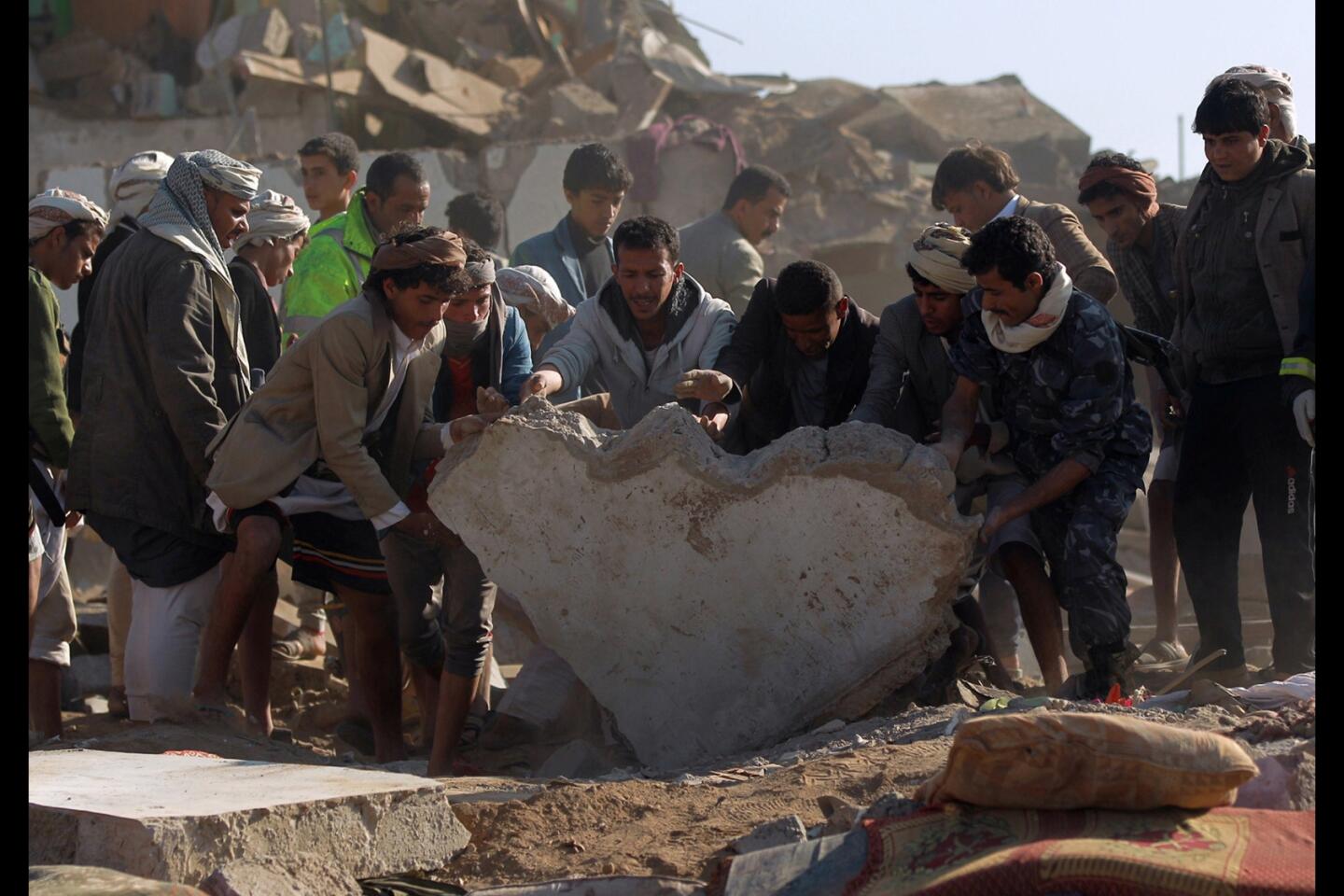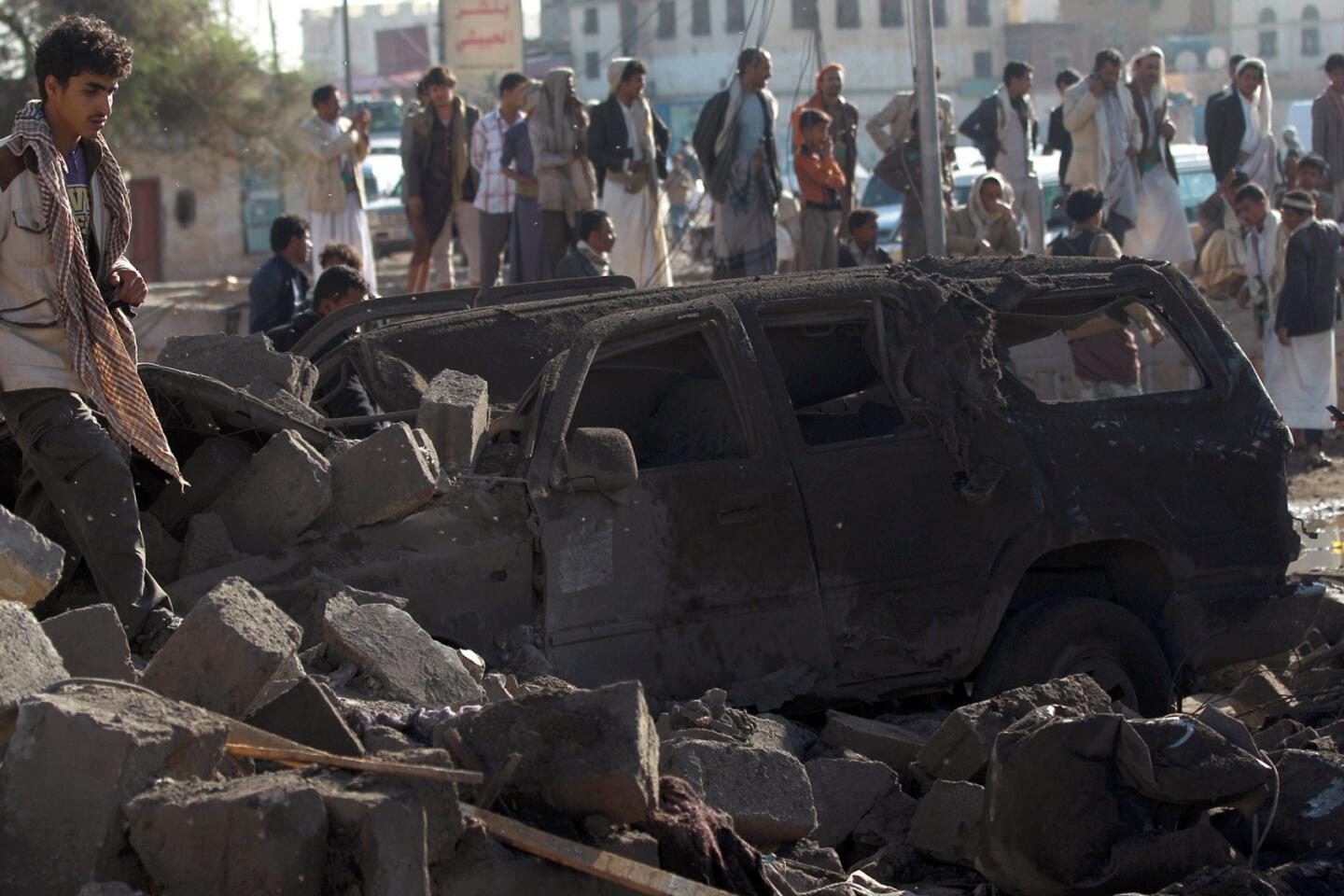Saudi Arabia leads attack on Yemen rebels; president flees
- Share via
Reporting from Sana, Yemen — Yemen’s embattled President Abdu Rabu Mansour Hadi flew to Saudi Arabia on Thursday as warplanes from that kingdom and its allies pounded Shiite Muslim rebels who have taken over much of his country.
Explosions and antiaircraft fire echoed across Yemen’s capital, Sana, where many military sites that were under the control of the Houthi rebel movement were reported destroyed.
Medical officials in the city said at least 45 people were killed and dozens injured in the strikes as much of Sana was plunged into darkness from power outages. The Education Ministry ordered schools closed, and a large number of families were believed to have fled their homes.
The explosions picked up after nighfall in many parts of the city.
Sana resident Mohammed Dubai said his children were scared; the young ones were crying. “You cannot tell or know what is happening exactly,” he said.
The military intervention launched Wednesday threatened to expand what had been an internal conflict into a regional war, with Shiite-led Iran backing the rebels and the region’s Sunni Muslim power, Saudi Arabia, and its supporters seeking to defend Hadi’s claim to power.
Saudi Arabia has assembled a coalition with nine other countries, including members of the regional Gulf Cooperation Council, to support Hadi and prevent a takeover by the rebels who swept down from the north of Yemen and seized the capital in September. The United States is providing logistical and intelligence support but is not taking direct military action in Yemen, officials said.
Iran, joined by Russia and China, condemned the intervention, with a spokeswoman for the Foreign Ministry in Tehran saying that resorting “to military measures against Yemen will ... spread the crisis in the region.”
In a fiery speech late Thursday, the Houthi leader, Abdul-Malak Houthi, demanded that Saudi Arabia and its allies stop what he called their evil atrocities. “Yemenis won’t remain in their houses. All will carry arms and defend their land,” he warned.
Fleeing house arrest, Hadi took refuge in February in the southern port city of Aden, the hub of a secessionist drive that has gained momentum with the Houthi advances.As rebel forces approached the city Wednesday, he reportedly fled by boat.
Hadi arrived Thursday at an air base in the Saudi capital, Riyadh, where he was met by Prince Mohammed, the defense minister and son of King Salman, the official Saudi Press Agency reported. From there, he was expected to travel to the Egyptian Red Sea resort of Sharm el Sheik to attend an Arab summit on Saturday.
Saudi Arabia was deeply alarmed about the rise of the Houthi rebels in Yemen, with whom it shares a highly porous, 1,100-mile border. Its rulers view the insurgents as proxies for Iran and regard their campaign to unseat Hadi as a case of Iran interfering in the Saudis’ backyard.
“They want to hit the group militarily, but they also want to send a wider message that this is a red line for them,” said Jane Kinninmont, deputy head of the Middle East and North Africa program at Chatham House, a Britain-based think tank.
The stakes are not as high for Iran, which is believed to have provided some weapons and training to rebel leaders but may refrain from any military involvement that could jeopardize sensitive talks with the United States and other world powers over Tehran’s nuclear program.
“Ultimately this nuclear deal is more important for Iran than Yemen is,” Kinninmont said.
Armed clashes continued Thursday in the southern province of Aden between the rebels and forces loyal to Hadi, a U.S. ally in the fight against Al Qaeda’s affiliate in Yemen. There were also reports of heavy shelling in the Houthis’ northern provincial stronghold of Saada.
Saudi Arabia has 100 fighter jets and naval units participating in the operation, Saudi-owned Al Arabiya television reported. Other countries that have agreed to contribute aircraft include Egypt, the United Arab Emirates, Qatar, Kuwait, Bahrain, Jordan, Morocco, Sudan and Pakistan.
The Saudis also mobilized 150,000 troops, Al Arabiya said, raising the possibility of a ground offensive. The Egyptian presidency issued a statement Thursday saying it was also prepared to send ground forces if necessary.
The Saudis and their allies don’t want to be drawn into a prolonged ground war, regional experts said. They are more likely hoping to force the Houthi rebels back to the negotiating table in a position of weakness.
But there is a risk that the airstrikes will embolden the rebels and win them broader support in Yemen, where many are opposed to any kind of foreign intervention.
“Even if these attacks and war is over, Abdu Rabu Mansour will never be able to be president of Yemen, at least the northern parts,” said Nuha Mohammed, a university student in Yemen. “The nature of Yemenis is that they hate whoever attacks their people.”
Analysts warned that Al Qaeda’s Yemen branch, its most powerful affiliate, could take the opportunity to expand attacks, deepening the country’s turmoil.
“What will happen is that the Yemeni army, or what is left of it, will be finished and only militias will remain,” said Ali Bukhaiti, a political analyst in Yemen, calling it a perfect opportunity for Al Qaeda and the rival Islamic State group.
Thousands of Houthi supporters rallied in Sana to condemn the airstrikes, waving banners and chanting: “We will turn Yemen into the graveyard of the Saudi Arabia mercenaries.”
Elswehere in the city, people rushed to grocery shops to stock up on food.
“I have to buy things for my family in case things get worse in the country,” said one shopper at a large supermarket. “You cannot trust anything now and things are developing very quickly and the coming days are vague.”
Twitter: @alexzavis
Special correspondent Al-Alayaa reported from Sana and Times staff writer Zavis from Los Angeles. Special correspondents Ramin Mostaghim in Tehran and Amro Hassan in Berlin contributed to this report.
More to Read
Sign up for Essential California
The most important California stories and recommendations in your inbox every morning.
You may occasionally receive promotional content from the Los Angeles Times.
